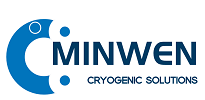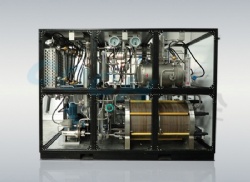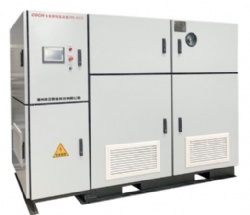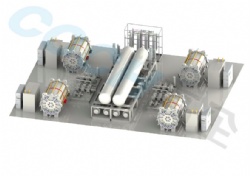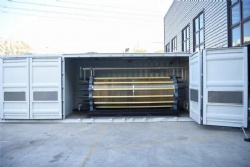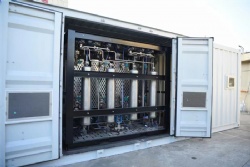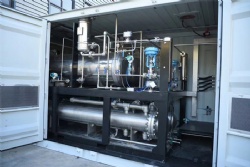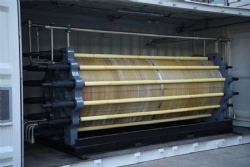1~1000Nm3/h 99.999% H2 Purity Alkaline Water Electrolysis Hydrogen Generator Electrolyte
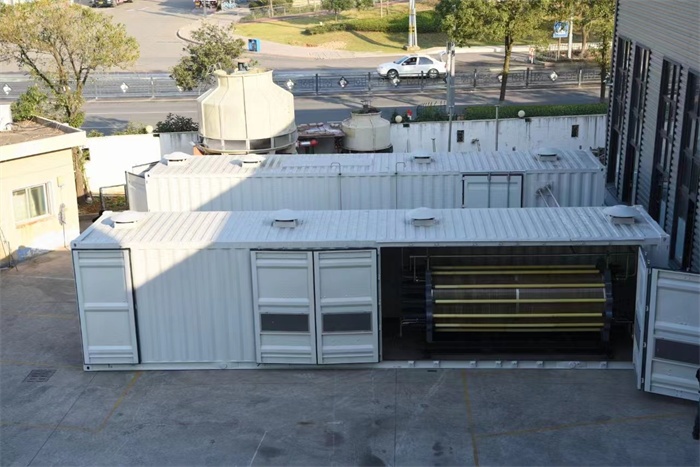
Alkaline Water Electrolysis Hydrogen Generator with KOH Electrolyte
Potassium hydroxide (KOH) is normally used in alkaline water electrolysis, thus avoiding the corrosion problems caused by acid electrolytes. KOH is preferred over sodium hydroxide (NaOH) because the former electrolyte solutions have higher conductivity.
Alkaline water electrolysis is the oldest, most industrially advanced and cheapest water electrolysis technology. Alkaline water electrolyzers are characterized by a slightly higher power consumption (compared to proton exchange membrane (PEM) electrolysis and electrolysis of water vapor), but the levels reached in terms of durability, reliability and security are excellent.
The principle of the alkaline water electrolysis is quite simple. Oxygen and hydrogen are separated from the water when the direct current is applied to the water, as shown in the equations.
Cathode:2H2O+2e−→H2+2OH-
Anode:2OH−→12O2+H2O+2e−
Total:2H2O→O2+2H2
Structure feature:
1. Electrolytic tank: applying brand-new structure design, low inner-electrode voltage, high current density, and low energy consumption per unit of hydrogen production.
2. Gas/liquid separator: simplifying the previous product structure, which makes the space smaller and better effects of gas/liquid separation.
3. Explosion-proof requirements: all the parts are designed as explosion-proof. Clients can choose the appointed brand parts if they require.
4. Cabinet: one integrated cabinet or split-type, even containerized type for client’s convenient use.
5. Pipes: all pipes are made of SS304 stainless steel and connected in the form of live joints, which changes the disadvantages of traditional flanges that are cumbersome and bulky, decreasing the user's maintenance cost and making the equipment space more reasonable, reducing the floor space.
Working conditions:
1. This equipment cannot be used in the open air, and it should has protection measures against rain, lightning and rodents.
2. Good ventilation must be ensured in the place where the equipment is installed and used, and there should be a ventilation device at the top of the place where the equipment is placed to ensure that gas will not accumulate.
3. The on-site ambient temperature is guaranteed to be above 0°C and below 40°C.
